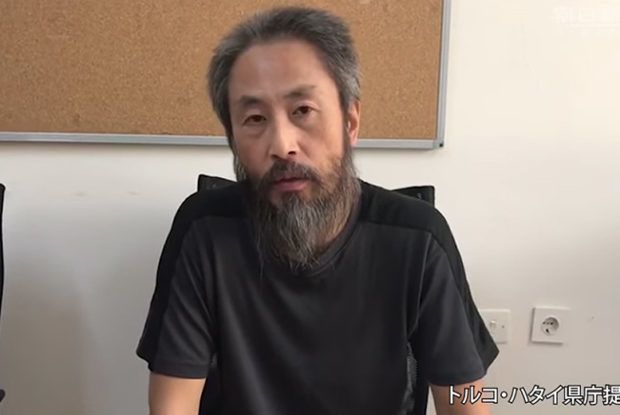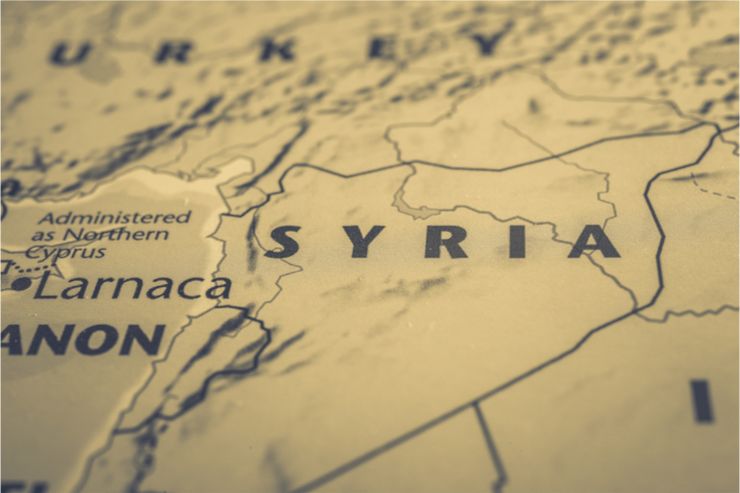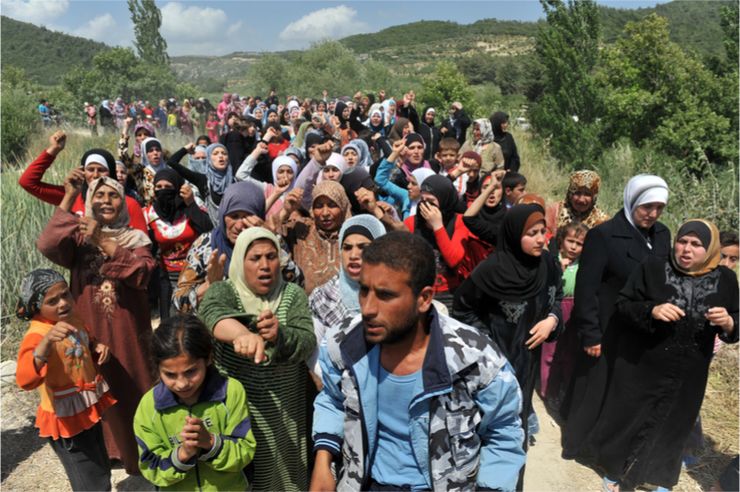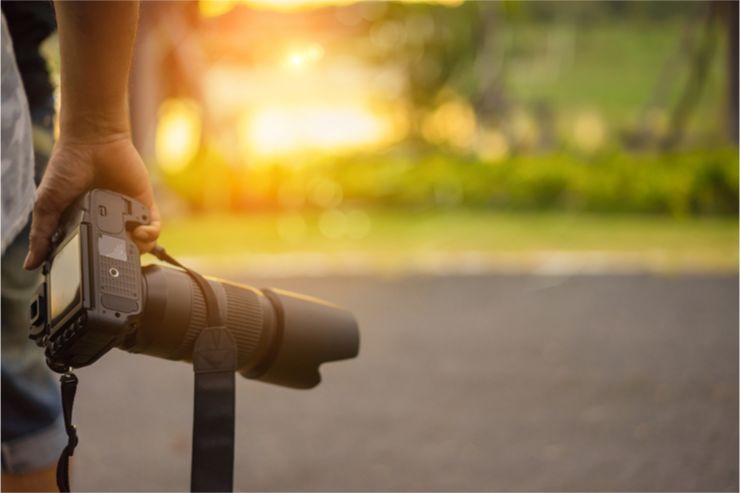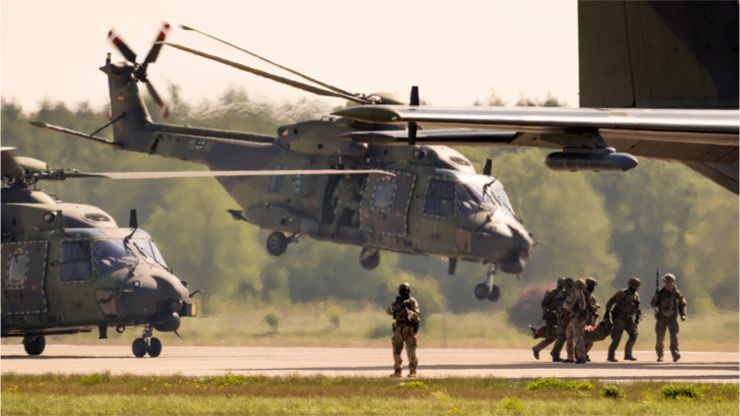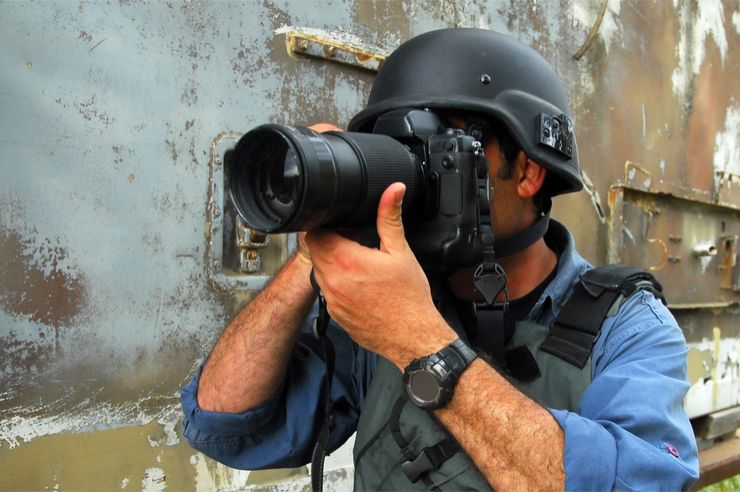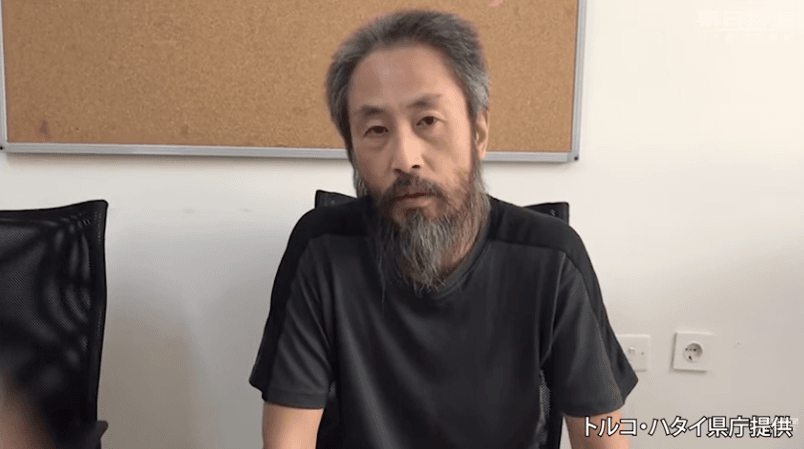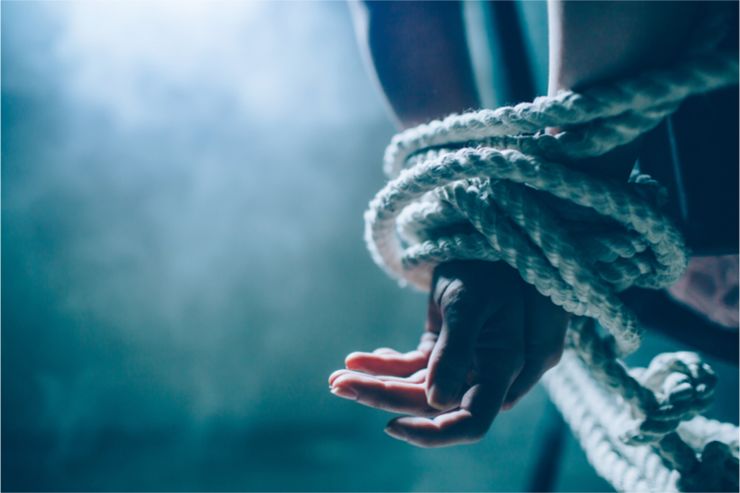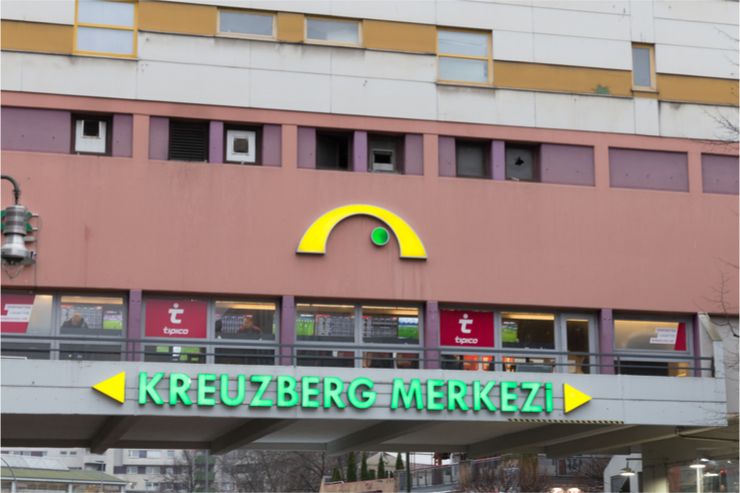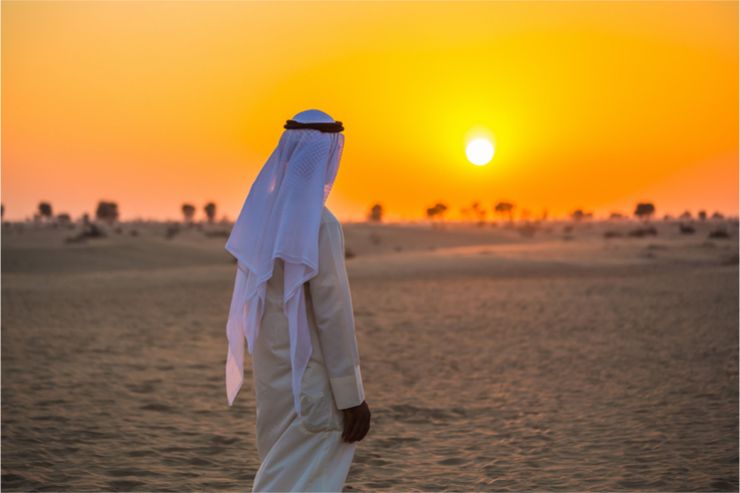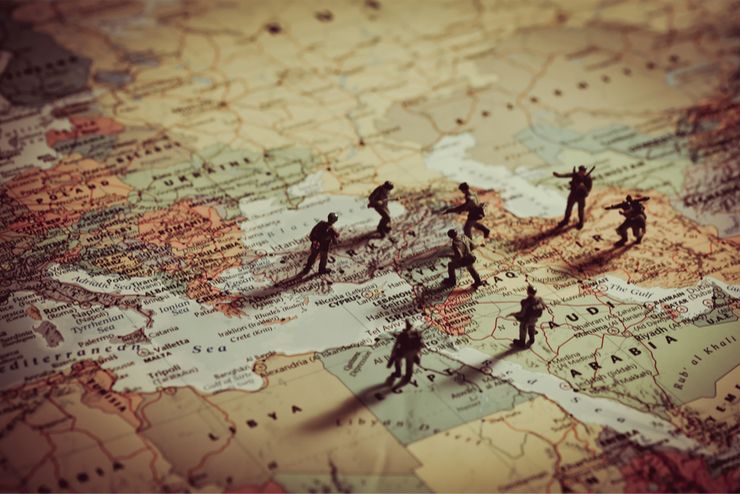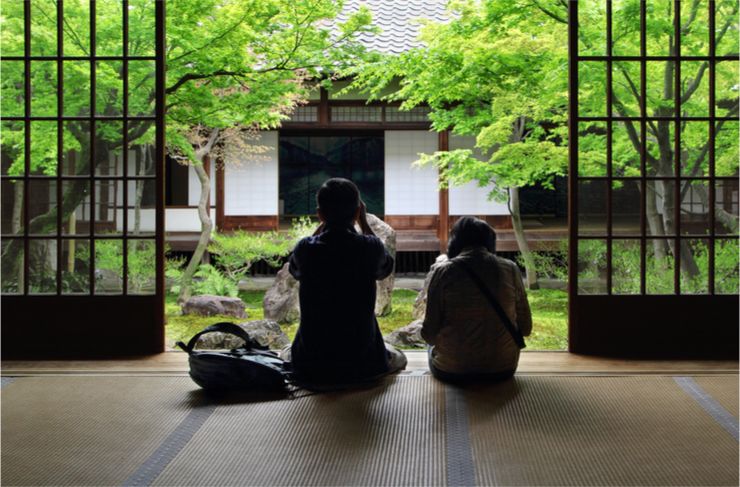There are plenty of jobs out there that, when most of us hear about the risks to life and limb that they entail, we think “you’d have to be nuts to do that sort of thing.” They even make TV shows of some of the more dramatic dangerous professions, like Deadliest Catch.
But one job that you may not come to mind for everyone is being a journalist. It makes sense, considering journalists biggest health risk is carpal tunnel from typing up too much copy. But for those brave – and perhaps reckless – journalists who choose to report from war zones, their profession can place them firmly in the cross-hairs of some very dangerous people…
Danger Zone
In 2014, one of the deadliest places in the world to be was Syria. For years, the country had been embroiled in a civil war fought between the Russian-backed Bashar al-Assad and his government, the Free Syrian Army, ISIS, and the Democratic Federation of Northern Syria. The kindest way to describe the situation was “politically complex.” To describe it in more visceral terms, the term ‘fubar’ comes to mind.
Stay Away
Unless you were a soldier fighting for the cause you believed in, it was an area of the world much better left alone, which is why millions of Syrians fled their homes rather than facing death from fighters under any number of banners or simple starvation.
Moth to Flame
But while ordinary people were fleeing the country, and fighters were flocking toward a conflict without easily identified “good guys,” there were journalists who were crazy enough to come to Syria simply to let the rest of the world know the truth about what was happening there.
War Reporter
One of those journalists was a man named Kenji Goto. He was a 47-year-old freelance video journalist who had built his career reporting from war-torn countries around the world, especially in Africa and the Middle East, with his work focusing on the lives and humanity of ordinary people living through extraordinarily bad situations.
Ignoring Warnings
Having been a war journalist his whole career, he was familiar with the dangers a place like Syria posed. He had been repeatedly warned by the Japanese government not to go into the country but went anyway, motivated by his desire to rescue Haruna Yukawa, a Japanese hostage that had been captured by ISIS.
Snatched
Despite all his experience, Goto was also captured by ISIS and became another bargaining chip for the terrorist organization, which was demanding that the Japanese government pay them $200 million in exchange for his and Yukawa’s lives.
Failed Negotiations
Unfortunately, the negotiations for their release broke down and both Goto and Yukawa were brutally executed. The following year, another Japanese journalist named Jumpei Yasuda ventured into Syria. His aim was to uncover the details and report on the capture and subsequent death of Goto.
Warzone Communication
It seemed that Yasuda would follow too closely in Goto’s footsteps when, in June of 2015, he went unaccounted for somewhere in northwestern Syria. Of course, it’s not always easy to get communication into and out of a warzone, so his friends and family hoped for the best.
Missing
But by mid-July, it was clear that something was wrong. Yasuda had failed to return to Japan on the date he’d scheduled to do so, leaving his family, friends, and colleagues fearing the worst. It would be more than a year before there would be any indication of what happened to him.
Video Footage
In March of 2016, footage of a man believed to be Yasuda was posted online. He was reading a message in English to his family and to the Japanese government, demanding a large sum of money for his release. The man who uploaded the footage said that Yasuda was being held captive by the al-Nursa Front, an al-Qaeda linked militant group.
‘Please Help’
In late May, video footage of Yasuda holding a message that said “please help” written in Japanese was sent to multiple media outlets. It would be more than a year before there was any indication whether he was alive or dead.
Old Video
Then in July of 2018, more footage of Yasuda was uploaded to Facebook, this time saying in English that he wanted to see his family. But the footage seemed to have been shot in October of 2017, so it wasn’t clear that he would even be alive.
Raising Questions
Another video that appeared in late July that caused even more confusion. A man, appearing to be Yasuda, was saying in Japanese “My name is Umaru and I’m South Korean,” adding “help.” It wasn’t clear why he had referred to himself as a South Korean, but experts did believe the video was shot that month.
Big Demands
Al-Nursa wanted $10 million for the release of the journalist but the Japanese government was unwilling to pay. While they wanted the safe return of their citizen, they had a policy of not negotiating with terrorists, for obvious reasons.
Direct Petition
Yasuda’s wife Myu had been doing everything she could for years to try and get her government to act and to work through whatever channels she could to get her husband home safe. Now, she decided to speak directly with her husband’s captors and in early August, held a news conference in Tokyo.
Tearful Plea
Fighting through tears, she pleaded with al-Nursa, asking if they could just find it in their hearts to let Yasuda go free. Ultimately, it wouldn’t be any amount of money or any emotional or moral concerns that would determine his fate.
‘Safe Condition’
In October of 2018, a video of Yasuda was sent from a Turkish immigration center, speaking in English. “I have been held in Syria for 40 months, now in Turkey. Now I’m in safe condition. Thank you very much.”
Reason Unclear
“It’s hard to say why he was released at this point in time,” said Shuji Hosaka, an expert on the Middle East and Islamic militancy. In his opinion, it was likely that it had to do with the way the war was going.
Pressures of War
Assad’s regime had “been clamping down on the opposition in north Syria, and some anti-Assad forces [like al-Nursa were] beginning to withdraw from the area,” Hosaka said. And because the group that held Yasuda captive had to pull out, “it would have been hard to take Yasuda with them, so they may have felt it was the right time to release him.”
Alive And Well
The government of Qatar had contacted the government of Japan to help facilitate the transfer, though both governments denied that they gave any money or any sort of concessions in exchange for Yasuda. Whatever the reason, Myu and the rest of Jumpei’s loved ones were beyond ecstatic to have him back alive and well.
